We Read This 75 Page Fed Reserve Report on Credit Cards So You Don’t Have To
FICO's credit score goldmine, Bread Financial to expand lending, Marqeta eyes embedded finance and BNPL, Mexico's new fintech unicorn, and more...
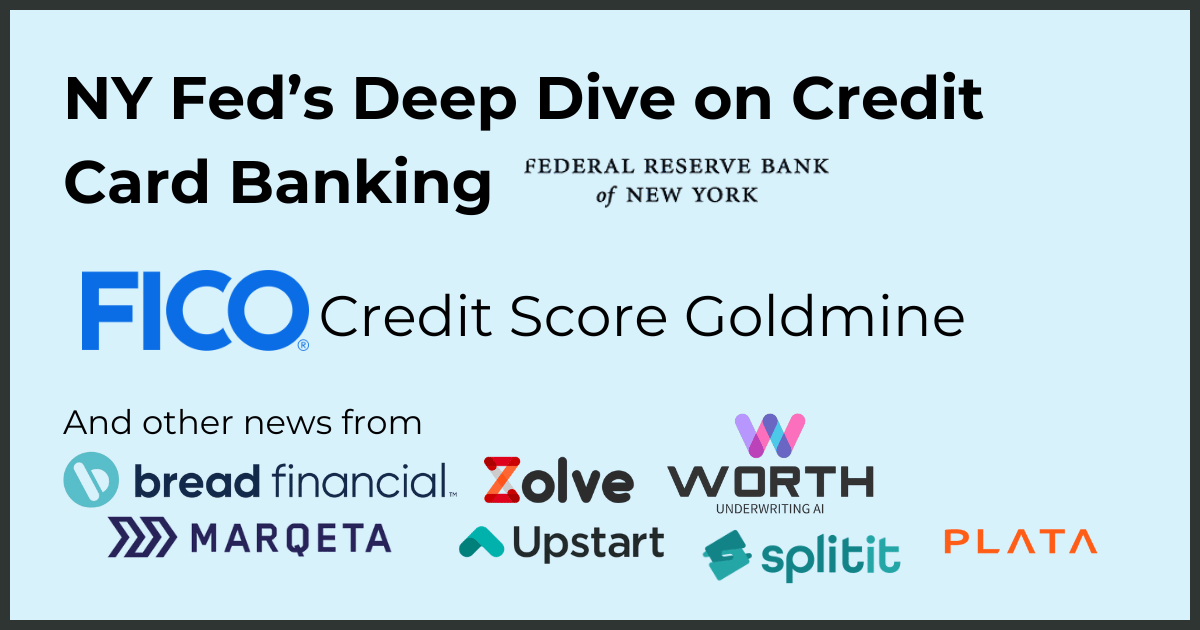
A new report from the Federal Reserve Bank of New York breaks down why credit card interest rates are "so high"—averaging 23%—and how banks profit from them. Despite default rates of about 5%, banks earn an impressive 6.8% return on assets from credit card lending, over four times higher than the banking sector average. Marketing and operating expenses are significant, but pricing power and risk premiums also play major roles. Even after adjusting for risk, credit card lending still generates a 1.17% to 1.44% “alpha” over other banking activities. [Federal Reserve Bank of New York]
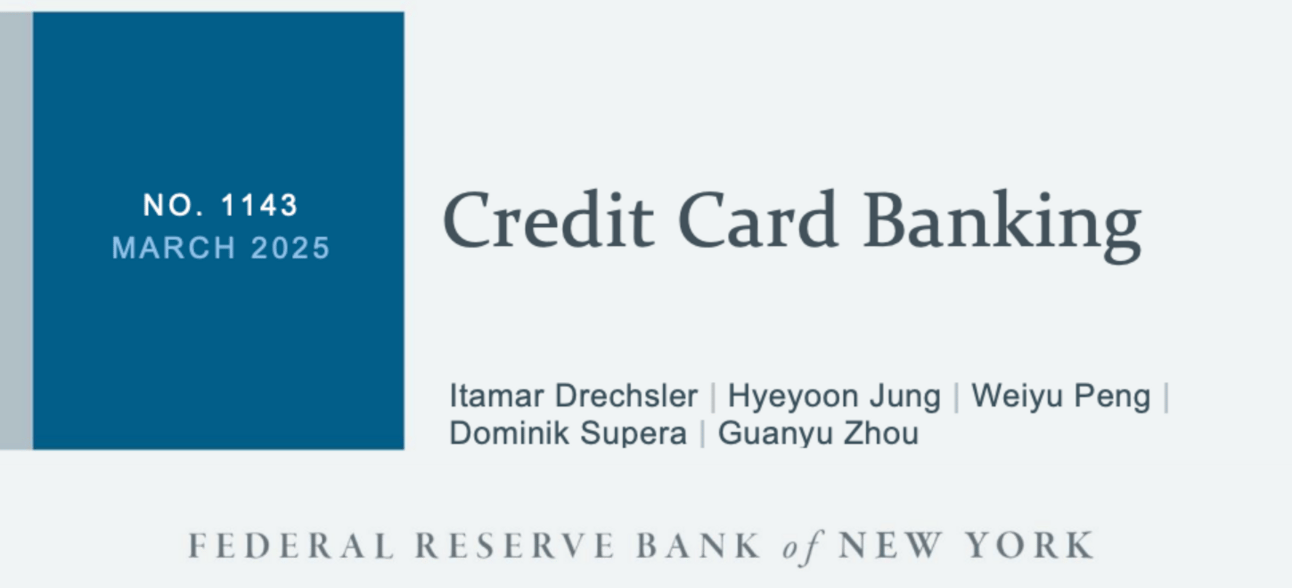
Toaster Takeaways
Fintechs like Robinhood and Affirm recently entered the credit card market because they know lending is where financial services generate the most profit. In fact, we wouldn’t be surprised if up to 70% of all financial service profits come from lending.
Payments, brokerage, and crypto are attractive, but lending is where the real money is. As Toaster subscribers, you already know this—but it's always reassuring when Fed data confirms it (see below).
The marketing budgets of traditional credit card companies are enormous. As a fintech, you can't outspend these incumbents. Instead, your edge will come from quickly leveraging new channels and opportunities before the big players notice. Success also lies in deeply understanding and serving your niche. And with $1.1 trillion in outstanding card balances, even a small niche can support a massive credit card business.
To succeed in a competitive credit card niche, you'll need a distinctive brand that sets you apart. Take inspiration from New Balance, which successfully reinvented its brand through an unconventional strategy that confused traditional performance marketers.
If you can’t tell, we’re bullish on niche lending and last year shared our case for building hyper-niche lending products.
Note: We'd love to hear from you if you're building a niche lending product (or want to build one)—the Toaster team partners with a network of companies that can help you. And, we’re always looking for what we can build ourselves. Maybe together we can build the next big thing.
Credit Card Industry: Key Insights from the NY Fed’s 75 Page Report on Credit Card Banking
Marketing as Strategic Investment
Credit card issuers invest heavily in marketing to build market power. The largest credit card banks spend 1-2% of their assets annually on marketing—ten times more than other banks. Major issuers like Capital One ($4 billion) and American Express ($5.2 billion) have marketing budgets comparable to global consumer giants like Nike ($4.1 billion) and Coca-Cola ($5 billion).
Scale and Prevalence
Credit cards dominate American financial life, with approximately 580 million accounts nationwide and 74% of US adults holding at least one card. In 2023, credit cards processed $6 trillion in purchases, representing 70% of all retail spending. Outstanding balances reached $1.1 trillion, with 60% of cardholders carrying balances month-to-month.
Outsized Financial Impact
Despite accounting for just 4.5% of banks' balance sheets, credit card lending generates a disproportionate 16.6% of banks' interest income. This profitability stems from remarkably high interest rates—the average APR in 2023 was 23%, a staggering 18 percentage points above the Federal Funds rate.
Risk and Default Patterns
Credit card lending is substantially riskier than other forms of bank lending. From 2010-2023, credit card charge-offs averaged 3.96% of balances, compared to just 0.46% for business loans and 0.43% for residential mortgages. Credit cards generated 53% of banks' annual default losses despite their relatively small share of assets.
Risk Adjusted Profitability
Even after accounting for defaults, credit card lending maintains an average default-adjusted spread of 10%. When factoring in the risk premium (estimated at 5.3% for the average borrower), credit card portfolios still generate an "alpha" of 1.17% to 1.44% compared to the overall banking sector.
Diverse Revenue Streams
While interest is the primary revenue source, interchange fees (averaging 1.82% of purchase volume) offset the cost of rewards programs (approximately 1.57% of purchase volume). The 40% of " transactors " accounts (paying balances in full) generate revenue primarily through interchange rather than interest.
These findings highlight the complex economics of credit card banking, where high interest rates reflect not just default compensation but significant risk premiums and market power derived from substantial marketing investments.
How FICO Turned Its Credit Scores Into A Profit Machine
FICO turned its credit score business into a goldmine under CEO William Lansing, whose aggressive price hikes and strategic moves have made him nearly a billionaire. Since taking over in 2012, Lansing has pushed FICO’s stock up 2,105% over a decade, tripled net income to $513 million in 2024, and raised mortgage score fees from 10 cents to $4.95 per score. While regulators and competitors like VantageScore push back, FICO remains the gold standard in credit scoring, with its consumer brand recognition skyrocketing from 30% in 2012 to over 90% today. Meanwhile, its software division—offering fraud prevention and analytics tools—continues growing, setting the stage for even bigger profits if mortgage lending rebounds. [Forbes]
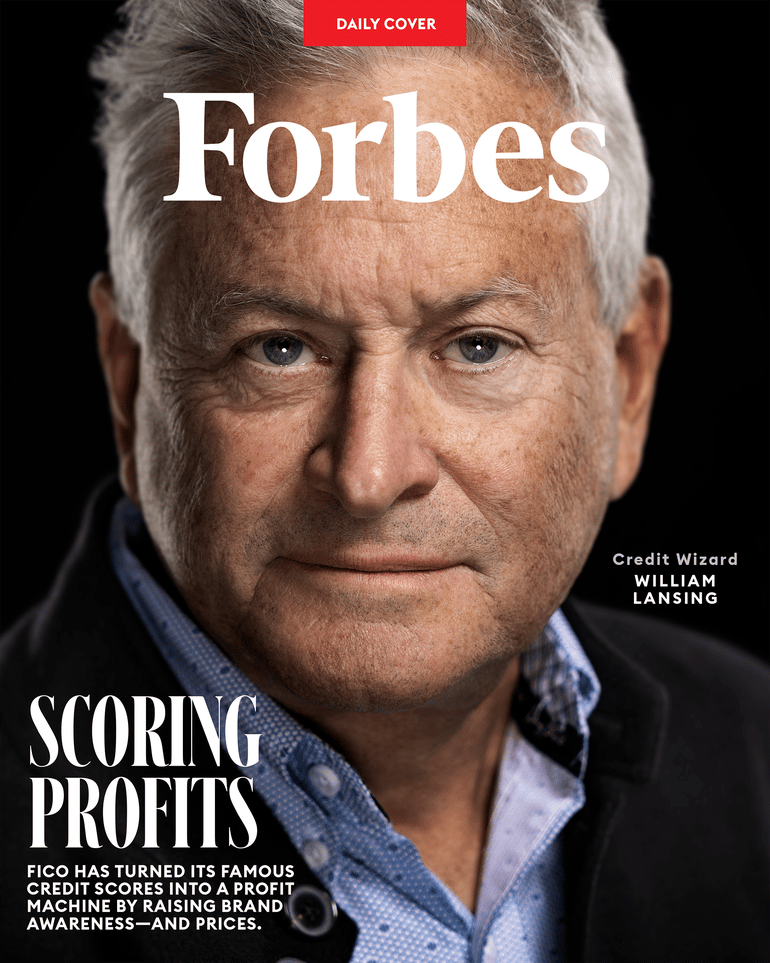
Sponsor Search: We Want to See Your Company Here!

Click here to email newsletters@ghostmode.co

Highlights of the Week
TL;DR
Bread Financial is cautiously expanding its lending amid improving credit conditions, while Zolve secures $251M to extend banking services globally without traditional credit barriers. Worth raises $20M, simplifying small-business underwriting with AI-backed speed and accuracy, and Marqeta eyes embedded finance and BNPL as its next growth frontiers. Upstart aims to solve marketing woes for credit unions with AI, Splitit partners with Highnote for frictionless installments, Utah advances wage-access regulation, big banks chase fintechs in BNPL, and Mexico’s Plata hits unicorn status with a $1.5B valuation.
Bread Financial at RBC Financial Institutions Conference
Bread Financial, a tech-forward payment and consumer lending company, outlined its strategic direction at the RBC Capital Markets Global Financial Institutions Conference. The company remains focused on disciplined growth, risk management, and capital optimization under CEO Ralph Vendretta. Spending volume grew "modestly" by 1% year-over-year in Q4, and delinquency rates are expected to improve as inflation eases. Bread Financial also maintains a "tight lending posture," leading to better-quality loan vintages.
The firm continues diversifying partnerships, adding AAA, NFL, and Saks to its roster. EVP & CFO Perry Beberman dismissed a proposed 10% interest rate cap as "unrealistic and potentially damaging." He also noted that post-COVID stimulus created a "head fake" in credit scores, which are now normalizing. Looking ahead, Bread Financial sees responsible growth opportunities, an improving credit risk mix, and slight expansion in net interest margins. [RBC Global Financial Institutions Conference]
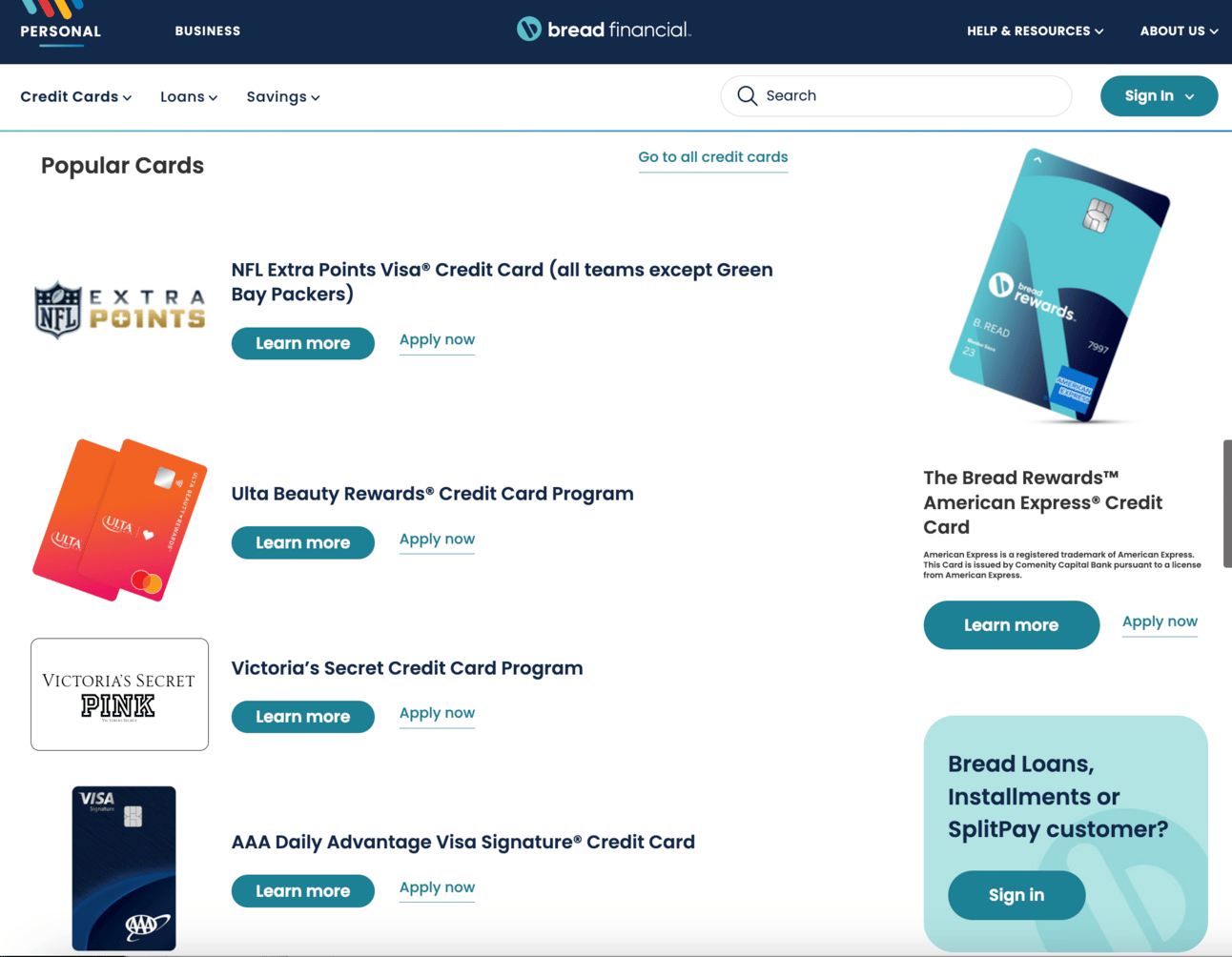
Zolve Raises Series B
Zolve, a neobank catering to global citizens moving to the U.S., raised $51 million in equity and secured $200 million in debt to fuel expansion. The startup, which provides credit cards and banking access to newcomers without requiring U.S. credit history, has amassed 750,000 customers and processed over $1.2 billion in transactions since launching in 2021. With $25 million in net revenue last year, Zolve now plans to introduce auto, personal, and education loans while expanding into Canada by mid-year and the U.K. and Australia in 2026. The Series B round was led by Creaegis, with backing from HSBC, SBI, GMO, and DG Daiwa, alongside existing investors Accel, Lightspeed Venture Partners, Sparta Group, and DST Global. [TechCrunch]
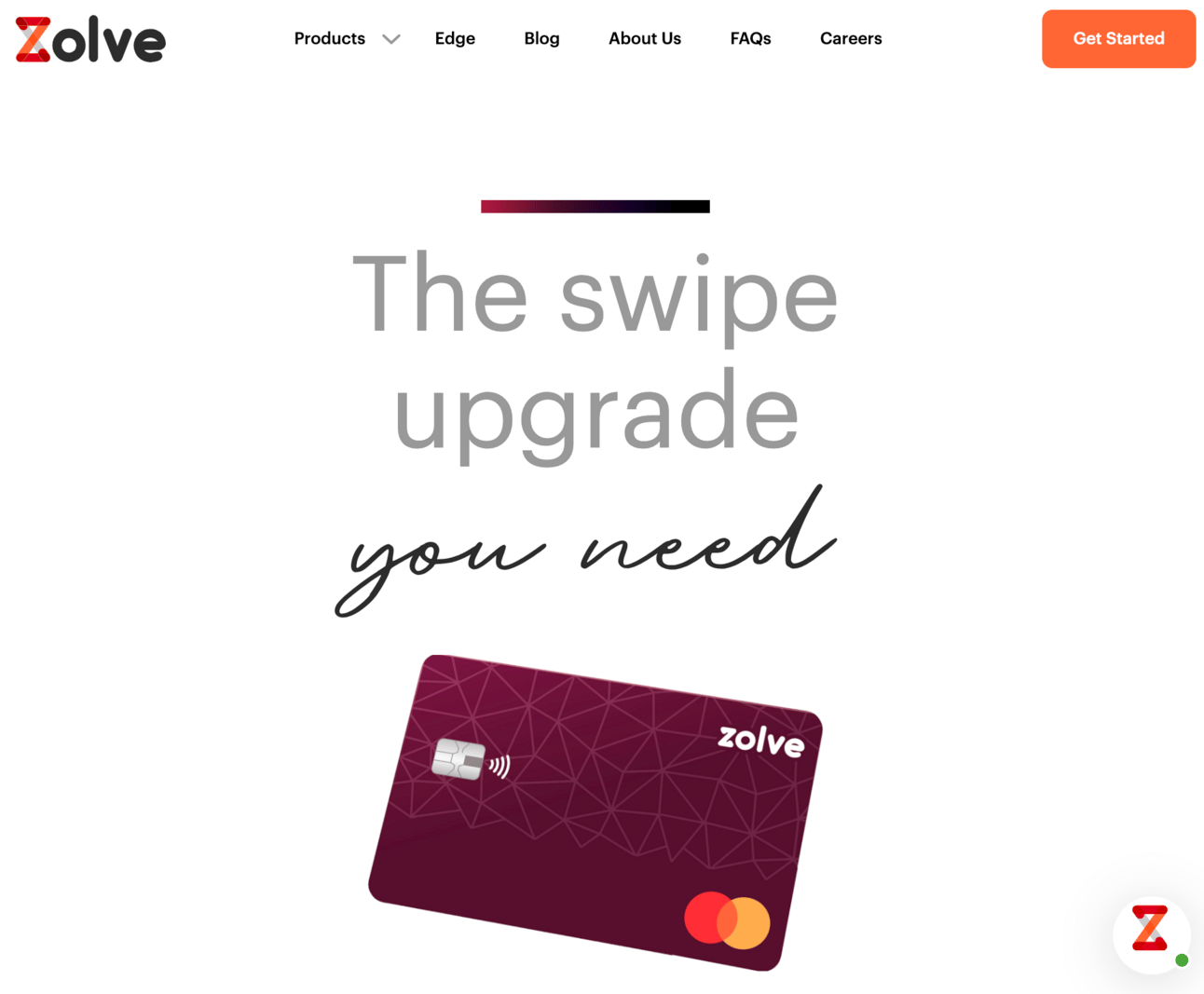
Worth Raises Seed Round
Worth, a fintech streamlining underwriting for SMBs, raised $20 million in a seed round led by TTV Capital, plus $5 million in debt from Silicon Valley Bank. Founded by the sibling duo behind Stax Payments, which hit a $1.1 billion valuation, Worth helps banks, fintechs, and enterprises quickly onboard and underwrite small businesses using just a name, address, and tax ID. The company has already built a proprietary database covering 242 million global SMBs through AI and a partnership with Equifax. With over 25 clients and “triple-digit” growth, Worth plans to launch a business credit score in 2026 to help SMBs better understand their financial health. [TechCrunch]
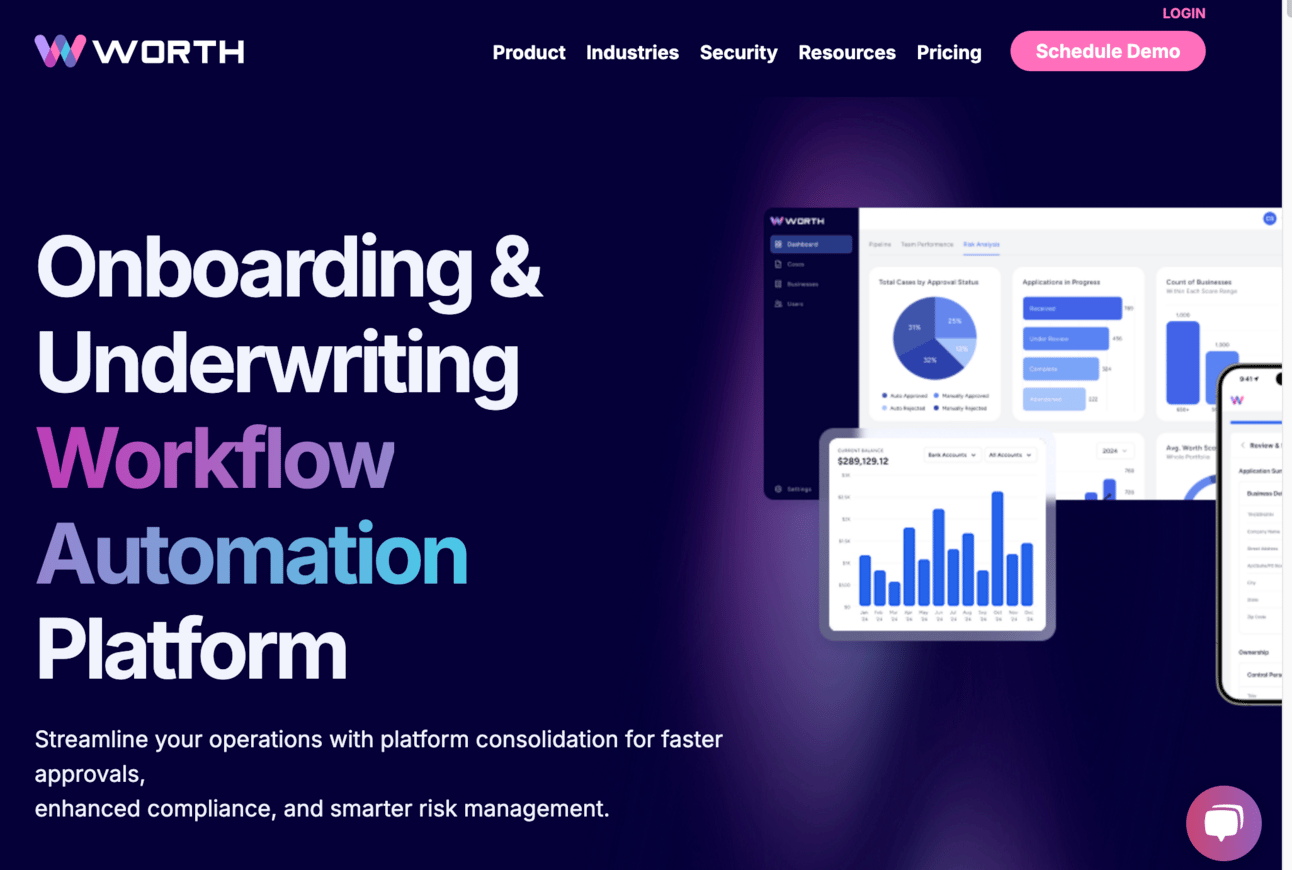
Marqeta Bets Big on Embedded Finance and BNPL
Marqeta, a card-issuing platform, shared its strategic plans at the Wolfe Fintech Forum, emphasizing embedded finance, credit expansion, and European growth. The company aims for 16%-18% revenue growth in 2025 and GAAP profitability by the end of 2026. Marqeta is also tapping into Visa’s Flexible Credential, launched in the U.S. with Affirm, allowing multiple funding options on a single card—helping embed BNPL into any debit card it issues. Mastercard One, a similar program, is also in the pipeline.
Interim CEO & CFO Mike Milotich highlighted how Marqeta’s platform can provide a seamless transition from debit to BNPL to secured credit, ultimately leading to revolving credit—all on one card. The company is also addressing high decline rates in co-branded credit applications, proposing a fallback debit card with similar rewards. With growing traction in Europe (over 100% TPV growth) and two new U.S. bank partnerships in 2025, Marqeta sees embedded finance as its next big growth wave beyond fintech. [Marqeta at Wolfe FinTech Forum]
As Credit Unions Struggle With Marketing, Upstart Says They Have the Answer
Upstart, an AI-driven lending platform, is helping credit unions tackle loan growth challenges as they work to regain momentum after a period of tightening. Michael Lock, SVP of Lending Partnerships, noted that while credit unions have strong products and a consumer-first mindset, they struggle with marketing, stating, “Most CEOs will say, ‘Hey, we don’t attract the best marketing talent.’” Upstart aims to bridge this gap by helping them reach digital-first consumers while improving underwriting. The company’s "T-Prime" program, launched last year, targets super-prime borrowers, reducing risk while boosting member acquisition. Lock also highlighted AI’s growing role in consumer lending, predicting AI-based underwriting will dominate within a few years. Upstart continues to enhance its models each quarter, driving unprecedented accuracy improvements. Additionally, it sees home equity lending (HELOCs) as a major growth area, offering credit unions a lower-risk, secured loan option while helping members tap into their home equity. [Credit Union Times]
Splitit Partners with Highnote to Enable Installment Payments
Splitit, a white-label installment payment platform, has partnered with Highnote, a modern card issuer, to enable credit card-linked installment payments through digital wallets at checkout. This collaboration leverages Highnote’s tokenized virtual card technology, allowing consumers to split purchases into installments using their existing credit without a credit check. “Highnote’s platform offers the flexibility, scalability, and security we need,” said Splitit CEO Nandan Sheth, emphasizing the seamless, low-friction experience for shoppers. Highnote’s CEO, John MacIlwaine, highlighted the partnership as a step toward modernizing and expanding payment options. [Business Wire]
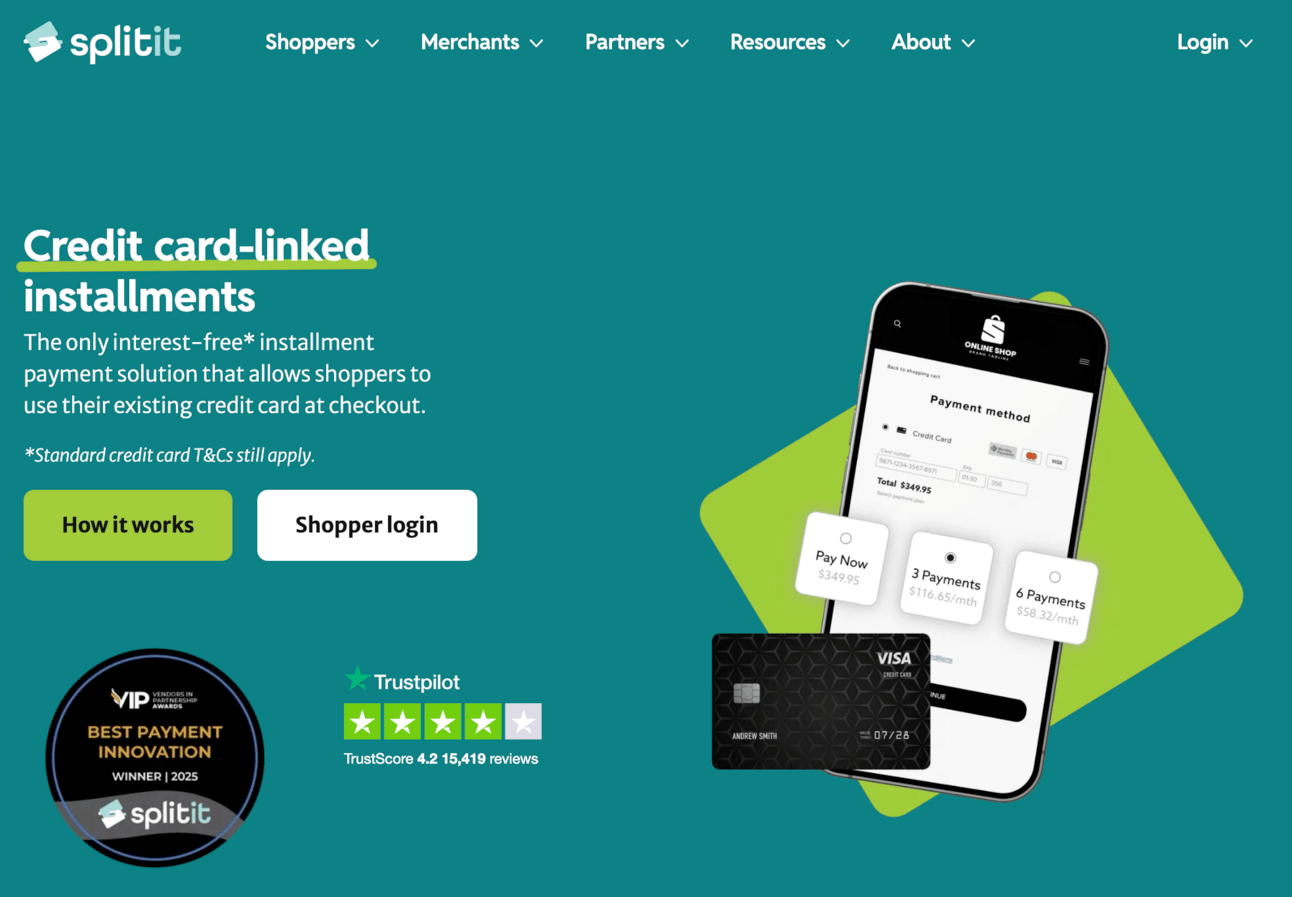
Utah's pro earned wage access bill reaches the governor
Utah is set to become the sixth state to regulate earned wage access (EWA) providers, as H.B. 279 awaits Governor Spencer Cox's signature. The bill requires annual registration, transparent fee disclosures, and at least one no-cost option for users, while allowing voluntary tipping. Supporters, including the American Fintech Council and DailyPay, praise the legislation for protecting consumers and fostering fintech innovation. Critics, like the Center for Responsible Lending, argue it lacks interest rate caps and could enable predatory lending. With 26 states exploring EWA regulations, Utah is reinforcing its reputation as a fintech hub, leveraging regulatory flexibility, tax incentives, and a pro-innovation stance. [American Banker]
Big banks play catch-up with fintech start-ups in deferred payments (BNPL)
Big banks are scrambling to compete with fintechs in the booming BNPL market, as deferred payments eat into their profitable credit card divisions. JPMorgan partnered with Affirm to offer BNPL to 900,000 business clients, while Citigroup expanded its offerings through Apple Pay and signed up 195 U.S. merchants for its Citi Pay service. Meanwhile, fintechs like Affirm and Klarna continue to gain ground, with Klarna eyeing a $15 billion IPO this year. Research firm Emarketer estimates BNPL transactions hit $94 billion in 2024 and could grow 50% by 2028. Some banks, like Bank of America and Wells Fargo, remain hesitant, while others, including Citizens, are pulling back after struggling to convert BNPL users into full banking customers. Citi, however, is taking a more traditional approach, running full credit checks and reporting payment histories to credit bureaus—something fintechs have largely avoided. [FT]
Plata, The Most Recently Authorized Mexican Bank, Completed Its Series A Round with a USD 1.5B Valuation
Plata, Mexico’s newest digital bank, just wrapped up a $160 million Series A round, pushing its valuation to $1.5 billion less than two years after launch. The bank, which secured its license in December 2024, has already surpassed one million active credit card users. Led by Kora, the funding brings Plata’s total investment in the Mexican market to $750 million, reinforcing its push to modernize banking with its fully digital, no-branch model. With a team of 1,500+ employees—including a hefty STEM presence—Plata is betting on proprietary tech and customer-first service to shake up the financial landscape. [PR Newswire]
Exclusive Content
Monevo CEO Shares How To Get Better Leads from Publishers
TransUnion is set to shake up the consumer credit market through its planned acquisition of Monevo, a fintech platform that connects lenders with publishers to deliver high-quality leads.
Tune into The Free Toaster Podcast to hear Monevo CEO Greg Cox share insights on how lenders can use credit data to efficiently target customers and boost conversions.

Find the show here:
Spotify // Apple // Audible // Podbean // iHeart
Other stuff we’re reading and listening to
CFPB’s Payment App and Overdraft Rules Face Challenges in Congress PYMNTS
Rocket Companies Snaps Up Redfin in $1.75B All-Stock Acquisition FinTech Futures
Green Dot's CEO Exits, Company to Explore Strategic Options American Banker
Visa Tap to Phone Adoption Soars: 200% Year-over-Year Growth Worldwide Visa
Exclusive: ResilienceVC Bucks Trend, Unveils $56M Fund to Back Fintechs Working on Financial Inclusion TechCrunch
Foundation Capital Launches $600M Fund for Crypto, Fintech, and AI Startups Traders Union
Clip is the Most Valuable Fintech Brand in Mexico FF News
Aspiration Co-Founder and Board Member Defrauded Investors of $145M, Prosecutors Say TechCrunch
Late Car Payments Hit Highest Rate in More Than 30 Years PYMNTS
Credit Card Data, Statistics and Research NerdWallet
Ally's Latest Capital Move Will Mean $250 Million Loss in Q1 American Banker
FICO Announces Availability of FICO Score Mortgage Simulator for Lender Use BusinessWire
Report: Papaya Global Adds Citi as Sponsor Bank PYMNTS
Money20/20 Europe Unveils Agenda for 2025 Shaping the Next Era of Fintech FF News
US-Based WSFS Bank Partners with Greenlight for Family Financial Literacy App FinTech Futures
Nubank Elevates Customer Experiences with OpenAI FF News
Former Congressman Patrick McHenry Joins Equipifi as a Senior Advisor FF News
PayPal's Honey faces class action lawsuits [Canadian Fintech Affiliate Newsletter]
Revolut Announces Partnership With Wizz Air, Offering One-Click Payments and Ten-Fold Rewards FF News
American Express Expands Expense Management Offering with Center Acquisition FinTech Futures
Conference Board Reports Employment Trends Decline Amid ‘Growing Policy Uncertainty’ PYMNTS
FDIC Regulatory Revamp May Smooth Path to Bank Mergers, Formations, and FinTech Partnerships PYMNTS
🎧 Ryan Graciano, Credit Karma Co-Founder - Scaling to 130 Million Users, Turning Crisis into Opportunity, Leading Product Innovation From CTO to CPO Fintech Leaders
Support The Free Toaster
Need to improve application page conversions? Chat with Spinwheel
Need to accelerate your affiliate marketing? Chat with New Market Growth
Need to win on other growth channels? Chat with FIAT Growth
None of the above? Forward this email to a colleague

About Us
Welcome to The Free Toaster! The newsletter for marketing pros at fintechs, banks, and lenders.
Inspired by the free toasters banks used to give to each new customer, we’re here to help you acquire more customers at scale. We deliver fresh news, data, and insights to help you acquire more customers—minus the breadcrumbs.
Want to follow the authors on social media? Find Nick Madrid and Carlos Caro on LinkedIn.


